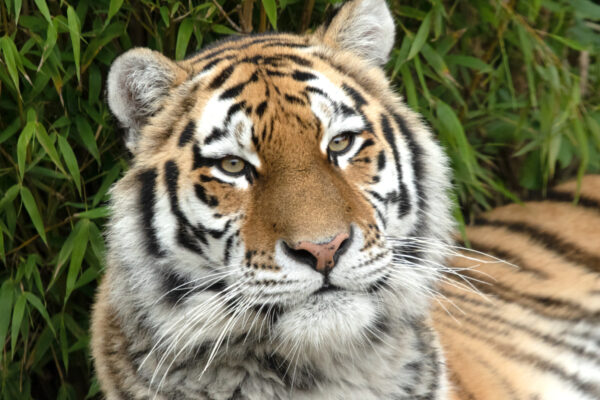Posted May 5, 2019 in Conservation
Please see the latest press release written by Species360 on the important data Zoos, including Colchester Zoo, provide to help in their mission to sustain biodiversity.
Despite volumes of data currently available on mankind, it is surprising how little we know about other species. A paper published this week in the journal Proceedings of the National Academy of Sciences (PNAS) – using data recorded by Colchester Zoo in collaboration with other zoos and aquariums worldwide – confirms that critical information, such as fertility and survival rates, is missing from global data for more than 98 percent of known species of mammals, birds, reptiles, and amphibians.
It’s a gap with far-reaching implications for conservationists seeking to blunt the impact of mass extinctions. At a minimum, scientists working worldwide on behalf of IUCN Red List, IUCN Species Survival Commission, Convention on International Trade in Endangered Species of Flora and Fauna (CITES), TRAFFIC, Monitor, and others require more complete data to make informed decisions.
That changed when researchers added data from a previously untapped source, the Zoological Information Management System (ZIMS). Across classes of species, key blanks fill with salient data. Colchester Zoo records their animal data in ZIMS, which is curated by wildlife professionals working within zoos, aquariums, refuge, research, and education centers in 97 countries. It is maintained by Species360, a non-profit member-driven organization that facilitates information sharing among its nearly 1,200 institutional members, and is the world’s largest set of wildlife data. Colchester Zoo has been contributing data on their animals since 1989. Since then, they have added data on 5928birds, reptiles, amphibians, and mammals of 609 species, making a huge impact on the understanding of those species’ life histories.
“It seems inconceivable. Yet scientists tasked with saving species often have to power through with best-guess assumptions that we hope approximate reality,” said lead researcher and Species360 Conservation Science Alliance director Dalia A. Conde.
A multidisciplinary team led by Species360 Conservation Science Alliance, with participants from 19 institutions, believes we can substantially increase what we know by applying new analytics to data that has been long overlooked – using data contributed by Colchester Zoo and other zoos and aquariums around the world. “Providing that missing data – filling in those gaps – is game-changing for these species,” adds the director of Colchester Zoo.
Predicting when species are at risk, and how best to bolster populations, requires knowing at what age females reproduce, how many hatchlings or juveniles survive to adolescence, and how long adults live. To understand what data are currently available, and to measure the void, researchers developed a Species Knowledge Index (SKI) that classifies available demographic information for 32,144 known species of mammals, birds, reptiles and amphibians.
“Adding ZIMS was like turning on the lights in an otherwise very dim room,” said Conde. “Class by class, from mammals through amphibians, we saw large gaps fill with fundamental data needed to help conservationists assess populations and advocate for threatened, endangered, and vulnerable species.”
The team of 33 scientists including data analysts, biologists, and population dynamics specialists developed the first Species Knowledge Index to map just how much we know about species worldwide. The index aggregates, analyzes and maps data from 22 databases and the IUCN Red List of Threatened species.



